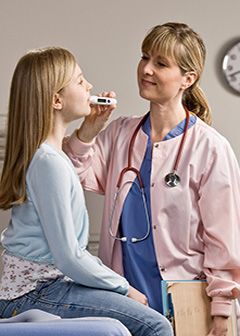Finding a Qualified Resume Writer for a...
|
| Resume Writers... | Thumbnail Review... |
|
www.resumewriters.com | Reasonable pricing, standout writing, and an interview guarantee from the largest network of resume writers on the Internet (representing more than 5 dozen career fields and industries). Guaranteed interviews within 60 days. The BBB gives them an A+ rating. |
|
|
www.greatresumesfast.com | Pricey, yes. But writing is "top shelf" from a team of HR Execs, Hiring Managers and former Recruiters, each detailed on the company's website. Expect an hour-long consultative phone session with your writer. Guaranteed interviews. The BBB gives them an A+. |
Considering a Career Move into Nursing?
If you're considering a move into nursing from either a closely related field or from a totally unrelated profession, you'll be looking for a transitional resume -- and a talented resume writer to handle the assignment. Transitional resumes are some of the most difficult resume projects as they require a writer knowledgeable in at least two professions -- and the ability to identify transferable skills from one to the other.
Before you hand off that resume assignment, make sure you know enough about the job of a Registered Nurse to... a) really want it, and b) be able to step up to the plate. Here's a quick overview (more information at Wikipedia - Registered Nurse):
 |
What You'll Do: Registered nurses have a wide range of responsibilities that include: checking up on patients' medical histories and asking them about their current symptoms, checking vitals signs, administering drugs and tests, monitoring patients who need constant care, operating various electronic and mechanical devices, devising and carrying out individual plans for patient care, aiding with lab tests and analysis, consulting with physicians and other medical personnel, and planning informational sessions for the public. As mentioned earlier, you'll likely work in a hospital, physician's office, nursing home, or other health clinic. Some nurses provide care in the private homes of patients, while others are employed in public and private schools, corrections facilities, or military bases. A handful of nurses frequently travel all around the world to help out in areas that need the most assistance. There are many qualities that are important to have as a nurse. First, nurses need to have compassion and passion for helping others. Next, nurses should be psychologically stable, patient, and thick-skinned. You will surely deal with difficult and aggressive patients sometime during your career. Finally, great communication and critical-thinking skills are the icing on the cake. |
 |
Education and Training: Generally, you will need to obtain a bachelor's degree in nursing to work as a registered nurse. This usually involves four years of full-time study and hundreds of hours of supervised clinical experience. Those with associate's degrees in nursing can transfer over to a BSN program to finish up their educational requirements. In addition to a BSN, every state requires that nurses pass the NCLEX-RN exam to get licensed. Certification is necessary for certain nursing specialties. |
 |
The Future: The nursing profession is expected to grow at about 26% through 2020. Overall, the job prospects appear to be excellent -- from hospitals to outpatient care centers to long-term rehabilitation care facilities. |
 |
The Pay: Annual salaries for Registered Nurses in the U.S. range from $44,100 to $95,100, with the average median annual wage hitting $65,900 in 2011 as per the U.S. Bureau of Labor Statistics. |
Still interested in pursuing a position as a Registered Nurse? Great. The next step is to prepare for a consultative telephone interview with your resume writer. Treat the coming job search like the business it is, and you'll do fine.
Best of luck,
David Alan Carter, OccupationalResumes.com

Tag or bookmark under:
Registered Nurse Resume | Registered Nursing Occupation | Resume Writing Services for a Registered
Nurse
_____
NOTE: This website
is monetized through the use of Affiliate Programs with the online providers we review. Read our Disclosure Statement for more information on our Affiliate
Relationships.
|



 Back To
Top
Back To
Top Facebook
Facebook Twitter
Twitter